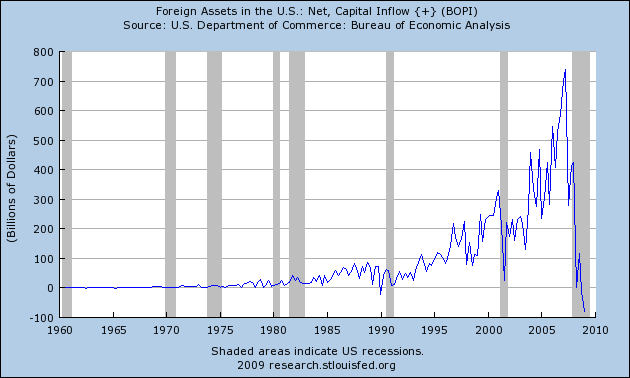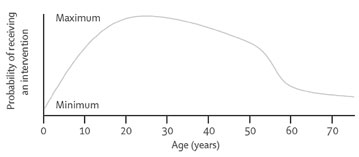Today’s New York Times concludes, no doubt with input from the White House, that they will go it alone on health care. This was probably in the cards as the left will not accept compromise and the bill is so bad that Republicans would do better to defeat it and start over after the 2010 election.
Those who have analyzed the bill have concluded that it is a shell with no specifics. They will be filled in by the unelected bureaucrats that fill the 67 committees and commissions and boards established by the legislation.
The argument goes: Given that HR 3200 proposes to fundamentally transform our healthcare system – a vast system that influences the life and death of all American citizens, and that consumes 17 or 18% of our economy – then before our elected representatives vote yea or nay on such a vital bill, they should consider it their sacred obligation to read it first.
DrRich will admit to having originally shared this opinion. But then he spent a couple of days attempting to read selected sections of the bill himself, in order to answer specific questions he had about those sections. (For instance: Does Section 1233 actually mandate end-of-life consultations for old people, or merely arrange for the option? Does Section 122 allow DrRich to continue his self-pay, high-deductable, catastrophic health insurance plan, or does it declare such plans illegal?) Now that he has made this effort, DrRich’s advice to our legislators is – don’t waste your time. For, even if you spend months parsing the convoluted grammar, numererous cross-references, and ambiguous language of this bill, you will not be able to answer even the simplest of questions about what it “really” says.
This is not just because the bill is complex and difficult. The Federalist Papers, for instance, are complex and difficult, full of classical allusions, archaic constructions, and difficult concepts. But with a little time and effort one can readily discern their meaning, and one comes to appreciate the full depth and remarkable persuasiveness of the ideas Hamilton, Madison and Jay were espousing. This is because at their bottom, the Federalist Papers actually say something.
Not so HR 3200. It is complexity for complexity’s sake. When one parses out all the legalese, cross-references, and unnecessarily tortuous syntax, one is often (if not in each and every case) left with nothing concrete. To a great extent, the meanings of large sections of HR 3200 are not merely difficult to ascertain, but are fundamentally indeterminate. It has no definite meaning. It is designed for ambiguity.
There is no intention of disclosing what sort of system this bill (HR 3200) establishes because the provisions would never be accepted by the public.
This is legislation designed to create a legal framework under which huge cadres of unelected, politically-appointed policy mavens and bureaucrats will determine – by publishing hundreds of thousands of pages of regulations, rules, and guidelines – what our new healthcare system will look like. And until those regulations and guidelines are actually created – and this “creation” will be a never-ending process rather than an act – anybody claiming to know the precise nature of our new healthcare system under HR 3200 is engaging in one of the following: lying, projecting one’s own wishful thinking, or extrapolating on the perceived behaviors and beliefs of those who (one surmises) will finally get to make up all the rules.
If it is not voted down, it should be reversed by the new Congress after 2010. A likely strategy might be to pass the House bill, HR 3200, with the “public option” and the Senate bill (one of five) without it. This will take some of the heat off the Senators. Then, in the conference committee, the conference bill will restore the provisions thought too toxic for the Senate and they will pass the combined bill by reconciliation, if necessary.
I don’t think they can do it but that seems to be their strategy. I’m not sure I would call it evil but many will be very angry if this happens.
He doesn’t seem to be the only one worried about this.
I was not intimidated during J. Edgar Hoover’s FBI hunt for reporters like me who criticized him. I railed against the Bush-Cheney war on the Bill of Rights without blinking. But now I am finally scared of a White House administration. President Obama’s desired health care reform intends that a federal board (similar to the British model) — as in the Center for Health Outcomes Research and Evaluation in a current Democratic bill — decides whether your quality of life, regardless of your political party, merits government-controlled funds to keep you alive. Watch for that life-decider in the final bill. It’s already in the stimulus bill signed into law.
The members of that ultimate federal board will themselves not have examined or seen the patient in question. For another example of the growing, tumultuous resistance to “Dr. Obama,” particularly among seniors, there is a July 29 Washington Times editorial citing a line from a report written by a key adviser to Obama on cost-efficient health care, prominent bioethicist Dr. Ezekiel Emanuel (brother of White House Chief of Staff Rahm Emanuel).
Emanuel writes about rationing health care for older Americans that “allocation (of medical care) by age is not invidious discrimination.” (The Lancet, January 2009) He calls this form of rationing — which is fundamental to Obamacare goals — “the complete lives system.” You see, at 65 or older, you’ve had more life years than a 25-year-old. As such, the latter can be more deserving of cost-efficient health care than older folks.
I have already posted on this topic but it bears repeating.
No matter what Congress does when it returns from its recess, rationing is a basic part of Obama’s eventual master health care plan. Here is what Obama said in an April 28 New York Times interview (quoted in Washington Times July 9 editorial) in which he describes a government end-of-life services guide for the citizenry as we get to a certain age, or are in a certain grave condition. Our government will undertake, he says, a “very difficult democratic conversation” about how “the chronically ill and those toward the end of their lives are accounting for potentially 80 percent of the total health care” costs.
This end-of-life consultation has been stripped from the Senate Finance Committee bill because of democracy-in-action town-hall outcries but remains in three House bills.
A specific end-of-life proposal is in draft Section 1233 of H.R. 3200, a House Democratic health care bill that is echoed in two others that also call for versions of “advance care planning consultation” every five years — or sooner if the patient is diagnosed with a progressive or terminal illness.
As the Washington Post’s Charles Lane penetratingly explains (Undue influence,” Aug. 8): the government would pay doctors to discuss with Medicare patients explanations of “living wills and durable powers of attorney … and (provide) a list of national and state-specific resources to assist consumers and their families” on making advance-care planning (read end-of-life) decisions.
Significantly, Lane adds that, “The doctor ‘shall’ (that’s an order) explain that Medicare pays for hospice care (hint, hint).”
But the Obama administration claims these fateful consultations are “purely voluntary.” In response, Lane — who learned a lot about reading between the lines while the Washington Post’s Supreme Court reporter — advises us:
“To me, ‘purely voluntary’ means ‘not unless the patient requests one.'”
But Obamas’ doctors will initiate these chats. “Patients,” notes Lane, “may refuse without penalty, but many will bow to white-coated authority.”
And who will these doctors be? What criteria will such Obama advisers as Dr. Ezekiel Emanuel set for conductors of end-of-life services?
I was alerted to Lanes’ crucial cautionary advice — for those of use who may be influenced to attend the Obamacare twilight consultations — by Wesley J. Smith, a continually invaluable reporter and analyst of, as he calls his most recent book, the “Culture of Death: The Assault on Medical Ethics in America” (Encounter Books).
As more Americans became increasingly troubled by this and other fearful elements of Dr. Obama’s cost-efficient health care regimen, Smith adds this vital advice, no matter what legislation Obama finally signs into law:
“Remember that legislation itself is only half the problem with Obamacare. Whatever bill passes, hundreds of bureaucrats in the federal agencies will have years to promulgate scores of regulations to govern the details of the law.
“This is where the real mischief could be done because most regulatory actions are effectuated beneath the public radar. It is thus essential, as just one example, that any end-of-life counseling provision in the final bill be specified to be purely voluntary … and that the counseling be required by law to be neutral as to outcome. Otherwise, even if the legislation doesn’t push in a specific direction — for instance, THE GOVERNMENT REFUSING TREATMENT — the regulations could.” (Emphasis added.)
The history of the “public option” is here in American Prospect and it has always been a sham and a Trojan horse for single payer.

